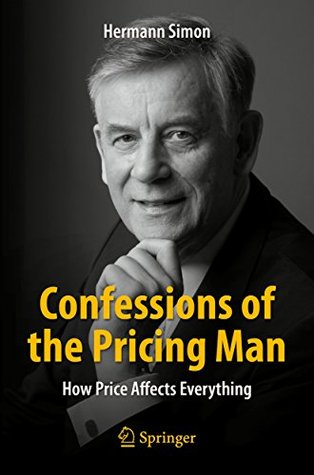More on this book
Community
Kindle Notes & Highlights
Read between
October 6 - October 26, 2019
Ryanair apparently achieves very low prices on the procurement side, too.
Dell became famous for its “configure to order ” concept, which meant it built nothing in advance to store in a warehouse. It would build a computer only after a customer ordered it.
One obstacle to profitability for Amazon and Zalando is the massive investments in infrastructure and logistics required by their business model s.
They began with that strategy from day one:
They are extremely efficient:
They guarantee adequate and consistent quality:
They have a strong focus on their core products:
They have a high-growth, high-revenue focus:
They are procurement champions:
They have little debt:
They control as much as they possibly can:
Their ads focus on price:
They never mix their messages:
They understand their role:
The key challenge is to establish an acceptable (not a minimal) level of value to customer, delivered with the highest cost efficiency
Success in the ultra-low price position requires a radical reorientation and redesign, massive simplification, local production, and extreme cost consciousness.
An effective defense strategy for the premium and midrange segments is to become competitive in the price segments further downmarket.
Think “simple yet robust”:
Develop locally:
Lock in lowest cost production:
Apply new marketing and sales approaches:
“Easy to use, easy to fix”:
Provide consistent quality:
The key challenge in the ultra-low price segment is to find an acceptable level of value to customer which will attract enough buyers and still keep costs at extremely low levels.
How much higher are premium price s than “normal” or “average” prices?
it’s impossible to give a general answer.
Often the premium product is the market leader. How is that possible? And what does it mean for profit? The answer lies in the higher perceived value or utility.
strong brand , a cool design , user-friendliness, and system integration. That combination resulted in much higher customer-perceived value , higher prices, higher volume , and astronomical profits.
Gillette practices premium pricing of the best kind: creating value through innovation, communicating that value, and then extracting it with premium price s.
Our products are engineered to last for 20 years. In terms of technology and ecology, they are among the best you can buy.
Markus Miele ’s words capture the essence of premium pricing
More relevant than traditional industry practices or rules is the true understanding of a product’s perceived value
a deep understanding of value to customer proved to be the foundation for an appropriate premium pricing strategy.
Enercon’s premium price position is based on hard facts about value to customer.
Enercon also practices a very successful pricing model which involves a new form of risk sharing . Under its Enercon Partner Concept (EPC), a customer can sign up for maintenance, security services, and repairs at a price which depends on the yield of the Enercon turbine.
In Enercon ’s case, the costs are manageable because of its superior product quality
Capitalizing on the added value of innovations is often more successful when a company introduces a new price metric
Superior value is a must:
The price-value relationship is the decisive competitive advantage
Innovation is the foundation:
Consistent, high quality is a must:
Premium pricers have strong brands:
Premium pricers invest heavily in communication:
Premium pricers shy away from special offers:
The key challenge in premium pricing is the balance between value and costs.
the price scale for luxury goods has no upper limits.
The answer depends on whom you ask.
The Grand Complication reveals another fundamental characteristic of luxury goods: as price rises into the stratosphere, the number of units available also seems to disappear into ever-thinner air.
One key secret to the art of pricing luxury goods is mastering “limited edition s.”
Luxury watches are a useful category for showing the difference between “volume ” and “value.” Watches manufactured in Switzerland represent just 2 % of the world’s annual watch production. Yet on the back of this tiny volume, the Swiss watches altogether account for an incredible 53 % of the global watch market on a value basis.36


